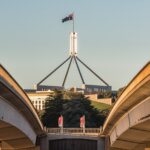Health system co-ordination and a reduction in red tape are also urgent demands.
GPs and other primary care leaders attending yesterday’s RACGP crisis summit in Canberra have taken a lights-and-sirens approach to the future funding of primary care.
“We are calling for an immediate and substantial increase in Medicare patient rebates, and an increase to the bulk-billing incentive by at least two to three times,” RACGP president Adjunct Professor Karen Price said. “This is particularly important for our rural and remote communities, which we know have poorer health outcomes and life expectancy, as well as those who are vulnerable and disadvantaged.
“We are also calling for appropriate and ongoing indexation for MBS items in line with the real-world costs of providing high-quality care in communities across the country.
“The time for talk is over. We need immediate action to ensure the future of patient care in Australia.”
While these will be familiar words to many, Mackay-based GP and RACGP president-elect Dr Nicole Higgins told TMR that this time the context was different.
“This has been said before on multiple occasions,” Dr Higgins said. “What’s different this time is that we’re at breaking point and I’ve never seen GPs so angry, so despondent and so united. All organisations are actually in the same space, and that hasn’t happened before.”
Australian Society of General Practice president Dr Chris Irwin – who has previously criticised the college for its lack of lobbying strength – said he was cautiously optimistic.
“I had some good conversations on the sidelines [of the summit], and I did get a sense that the new CEO and president realise there’s a need to take action,” Dr Irwin told TMR. “I think they’ll be able to ask how the college can increase its political capital to such an extent that it can turn words into action.”
Professor Price told reporters before the summit commenced that it would be focusing on three key areas.
“We’re looking at funding, we’re looking at the workforce – which is really linked to funding – and we’re looking at data governance to make sure that patients’ data is safe and that general practice is safe in the new data environment,” she said.
“Only 7.4 per cent of the health budget goes to general practice and that must change, otherwise we’re talking diddly-squat.
“The other thing we need to have is a coordinated health system – that’s one health system, whether it’s federal or state, whether they combine and work together, I don’t mind – but we need to stop using health as a political football between federal and state.
“We also need to reduce the amount of red tape, because it’s really strangling general practice and causing people to undercharge or do the work and not be paid for it.”
GPs see 90% of the population each year for 7.4% of the health budget.
— Dr Tim is fully vaccinated against the Covid (@timsenior) October 4, 2022
Striking statistic so far from the #RACGPSummit2022
“The goodwill of the profession is exploited” – @DrMukeshH opening the #RACGPSummit2022 @RACGP
— Jasmine Davis (she/her) (@jasminemdavis96) October 4, 2022
At the summit, 130 attendees were divided into groups of about 10 to discuss and propose solutions to each problem, with the most popular ideas then examined to decide whether they should be taken further.
Dr Higgins said the next stage would involve consultations with government and RACGP members.
“This needs to be socialised with the members,” she said. “We’ll ask is this how they see things? Is this what they want?”
Dr Jared Dart, one of the directors of GP owners’ group AGPA, said the opportunity for health professionals from many different backgrounds to work on solving problems together had been valuable – adding that he would have been the first to criticise any sort of “talk-fest”.
“I think the question of the workforce is a challenge for practices,” he told TMR, “and I think it’s also a worthwhile investment for government. So if government were to look at one-off increases in workforce incentive payments as part of the PIP, then we could deploy that to retain valuable nurses or increase capability as well as, in the future, looking to employ and deploy other allied health professionals to expand the scope of primary care.”
In a post-summit statement, AGPA said it was calling on the federal government to provide this type of emergency payment before the end of 2022.
The group also repeated its call to establish an independent pricing authority for Medicare rebates to ensure all government investment is evidence-based. This proposal was also floated by three or four of the groups at the summit, according to Dr Dart, who said the idea was “now starting to get some traction”.
The RACGP will release detailed recommendations from the summit in a white paper in coming weeks, including proposed short, medium, and long-term reforms. The college said these will aim to realign the health system to preventing illness and keeping people well in the community, rather than focus on “the current hospital-centric disease-specific model”.
The crisis summit was held following the release of the college’s Health of the Nation 2022 report, in which almost half of the 3200 GPs surveyed said it was financially unsustainable for them to continue working as a GP. Just over 3% said current Medicare rebates were adequate to cover the cost of providing high-quality care.
With Dr Mukesh Haikerwal as MC, the program included keynote presentations from Professor Price; RACGP rural chair Dr Michael Clements; director of UQ’s primary care reform research excellence centre Professor Claire Jackson; director of Newcastle University’s rural health department Professor Jenny May; RACGP funding and health system reform chair Dr Michael Wright; former AMA president Dr Steve Hambleton; and ANU Clinical Associate Professor Louise Stone. Federal Health Minister Mark Butler provided a pre-recorded video.






